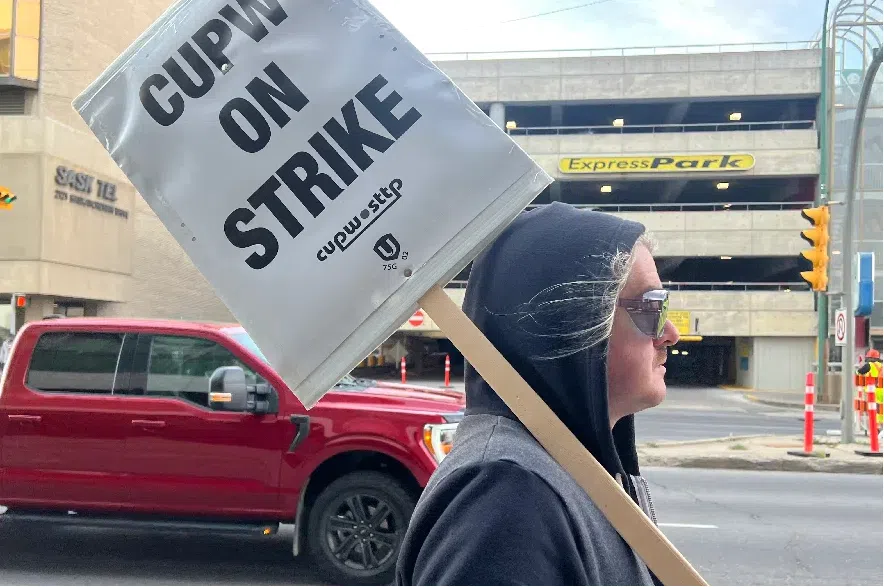Canada Post workers continue their strike in response to announced changes at the postal service.
Canada Post said it wished to reduce the frequency of its door-to-door delivery in order to help manage its finances.
Steven Seiferling, labour and employment lawyer at Saskatoon’s Seiferling Law firm joined The Evan Bray Show on Monday to discuss numerous possible outcomes of this dispute.
Read more:
- Jobs minister urges Canada Post to table new offer to striking union
- Sask. government has contingency plans amid postal strike
- What the Canada Post strike means for your passports, pension cheques and more
This conversation has been edited for length and clarity.
Bray: To what extent can the government of Canada unilaterally impose structural changes like the ones they talked about last week without negotiating them?
Seiferling: My understanding is that Canada Post, in the bargaining process, has tried to negotiate some changes and the union at every turn, has said, ‘No, we’re not interested in that.’
And that’s the party’s right in bargaining — they can say no. It’s known as hard bargaining … But what’s happened here is the Government of Canada has decided, okay, well, maybe we need to step in. This Crown Corporation, which is supposed to be self-sustaining, has lost $5 billion over the last five or six years. Maybe we need to do something about this and see if we can make it self-sustaining again.
So they took a look at some of the things that they can do and that they’d like to do, and they got rid of a moratorium on closure of rural post offices that’s been around since 1994. They got rid of a number of things the Liberal government in the early 80s put into place the Charter of Rights and Freedoms.
The early cases we got out of that said it applies to all government action, but we’re not going to dig into things like collective bargaining or the right to strike.
Fast forward, 25-30 years, and the Supreme Court of Canada changes its mind and says, ‘No, the charter does cover collective bargaining. The charter does cover the right to strike’.
So now we need to look at whether or not government action substantially interferes with collective bargaining, and that’s going to be the question that comes to the forefront.
Bray: Was there strategy involved with the timing of the announcement?
Seiferling: It’s not true that there’s no contract in place. It’s the old contract that survives until you negotiate a new one. But yes, they haven’t completed collective bargaining.
The government is going to have some options here. They could legislate, or — using the Canada Labour Code powers — order the workers back to work if they choose not to do that.
I think we’re in for a long haul here. I think the workers are going to be out for a fairly long time, because there is no middle ground. They have tried, and there is no middle ground between the positions of the Canada Post as a business and between the Canadian Union of Postal Workers.
The union’s got certain rights that it wants to protect for its members and the employer is looking at losing $5 billion over the last number of years, and they want to right the ship. The collective agreement and some of the other things the government has imposed – has prevented them from doing that now.
Bray: Walking out and a full-out strike is obviously what the union was able to do in a snap, but can they also do something more court-directed? Is there an injunction that they could do to block the implementation of this pending full negotiation?
Seiferling: They could ask the courts for an injunction. I’m speculating here because nothing’s been filed, but I assume the union of postal workers is going to go to court and challenge this government action under the charter.
Read more:











